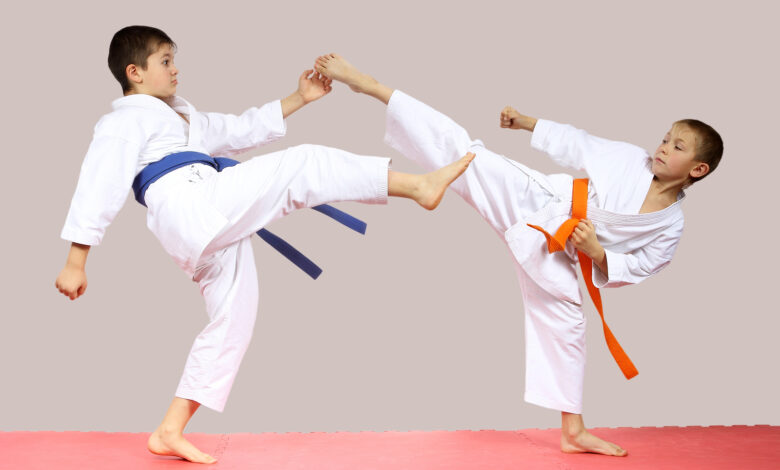
Karate, a Japanese martial art, has been embraced worldwide as an excellent discipline for children to foster physical, emotional, and cognitive development. With its focus on self-defense and philosophical richness, it serves as a constructive outlet for children to hone various life skills. This blog aims to guide parents in understanding the multifaceted aspects of enrolling their children in martial arts, specifically karate, and help them determine the optimal age and conditions for starting this enriching journey.
Benefits of Kids Martial Arts
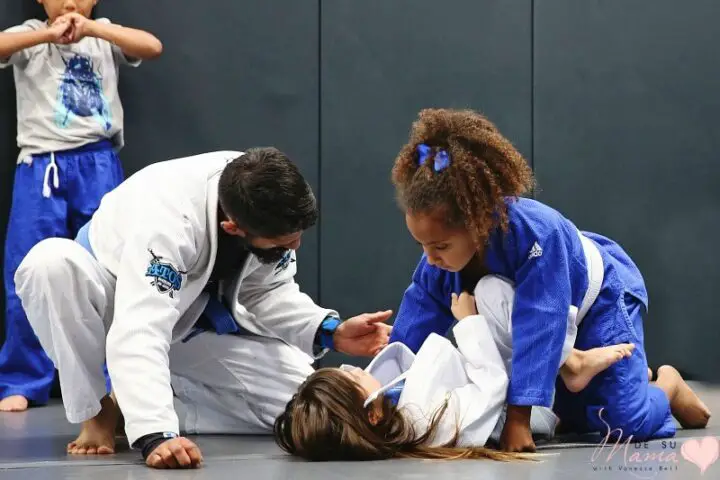
Martial arts, encompassing a myriad of styles and disciplines, provide holistic benefits for children. Karate, in particular, can be a catalyst for physical fitness, facilitating improved muscle strength, coordination, and flexibility. Beyond the physical realm, it imprints the virtues of discipline, respect, and perseverance, laying down the foundation for strong character development. Furthermore, it is a formidable tool for cultivating self-confidence and self-esteem, enabling children to navigate life’s challenges more effectively.
Children participating in martial arts tend to exhibit better academic performance and social skills, attributed to the enhanced focus, concentration, and discipline ingrained through the practice. The structured environment of a dojo (karate training hall) accentuates respect for authority, punctuality, and adherence to rules, translating into harmonious relationships with peers and adults. Additionally, the emphasis on conflict resolution and anti-bullying principles fortifies the moral compass of young martial artists.
Age Considerations
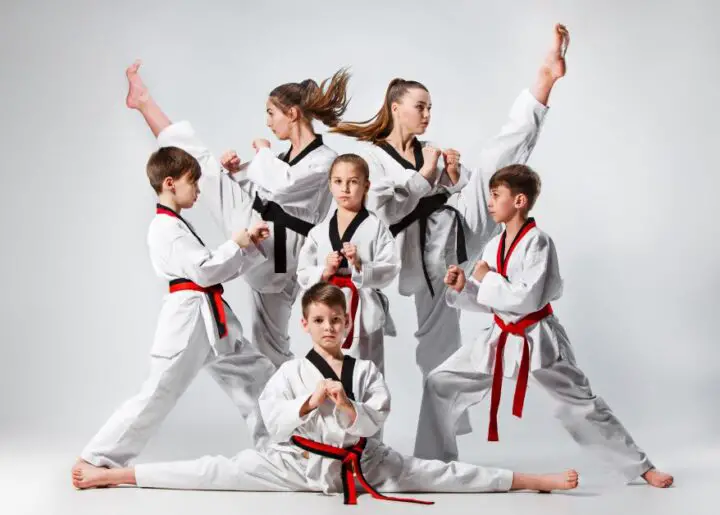
When it comes to embarking on the karate journey and attending a martial arts school, age is a significant consideration. While some schools accept children as young as three, around five to six years is generally an ideal starting point, correlating with the attainment of fundamental motor skills. However, readiness is highly individual, and parents should assess their child’s physical and emotional maturity, balancing eagerness with the ability to follow instructions and comprehend the philosophical aspects of karate.
Physical Development
A child’s physical development is crucial in determining readiness for karate. Mastery of basic motor skills such as balancing, jumping, and coordinating movements is pivotal. A child exhibiting proficient gross motor skills is likely to assimilate the karate techniques more seamlessly. Parents should be cognizant of their child’s endurance, flexibility, and strength, which are instrumental in performing the katas (forms) and kumite (sparring) inherent to karate. A child exhibiting readiness will be able to participate with vigor and maintain focus throughout the session.
Emotional and Cognitive Development
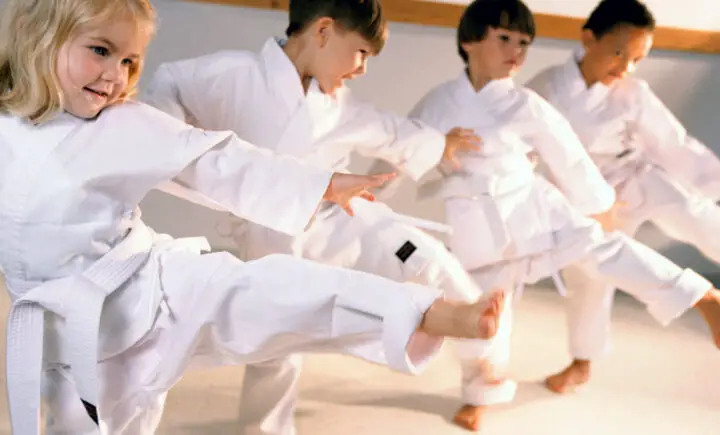
Karate is not merely a physical endeavor; it is intertwined with emotional and cognitive development. A child’s ability to control emotions, exhibit patience, and sustain attention are indicators of readiness. Karate, with its structured learning environment, nurtures emotional resilience, self-control, and concentration. The consistent practice allows children to develop mental toughness and a positive mindset, fostering a balanced and harmonious approach to life’s ups and downs.
Interest and Enthusiasm
A child’s inclination and enthusiasm toward karate are paramount. Parents can gauge interest through discussions or exposure to karate-related content and activities. A genuine interest is often manifested through persistent inquiries, eagerness to learn, and excitement about attending classes. It’s imperative that the desire to learn comes from the child, ensuring sustained commitment and enjoyment throughout the learning journey.
Choosing the Right Dojo
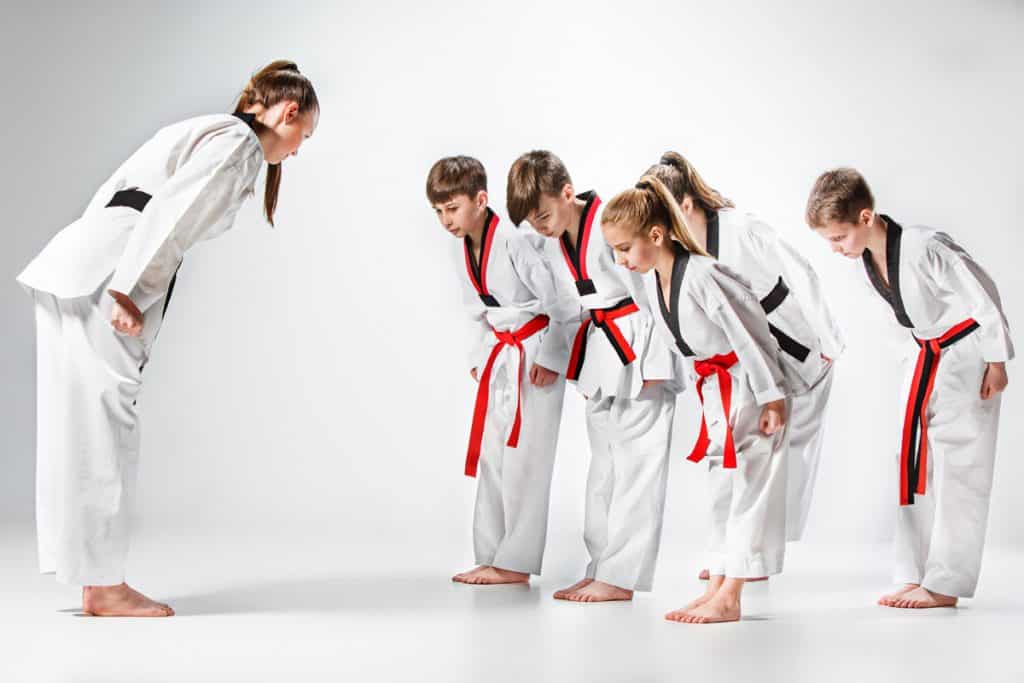
Selecting the right dojo is a consequential step in the karate journey. Parents should seek a dojo that aligns with their values, offers a conducive learning environment, and is helmed by qualified and experienced instructors. Observing classes, interacting with instructors, and assessing the curriculum are crucial in making an informed decision. A supportive and inclusive atmosphere will enhance the child’s learning experience and foster a sense of belonging and community.
Parental Support
Parental support undeniably acts as the cornerstone and bedrock of a child’s flourishing success in karate. By actively showing unwavering interest and enthusiasm, parents profoundly bolster their child’s enriching journey through the discipline of karate, encouraging consistent and disciplined practice, and fostering a wholesome, nurturing learning environment. Engaging in regular, meaningful discussions about their progress, ardently celebrating every achievement, and providing constructive guidance through challenges profoundly fortify the child’s resolve, motivation, and commitment to their practice. By possibly engaging in learning the rudimentary basics of karate, parents can foster a deeper understanding and connection with their child’s experiences, learning process, and challenges, thereby strengthening their supportive role.
Trial Classes
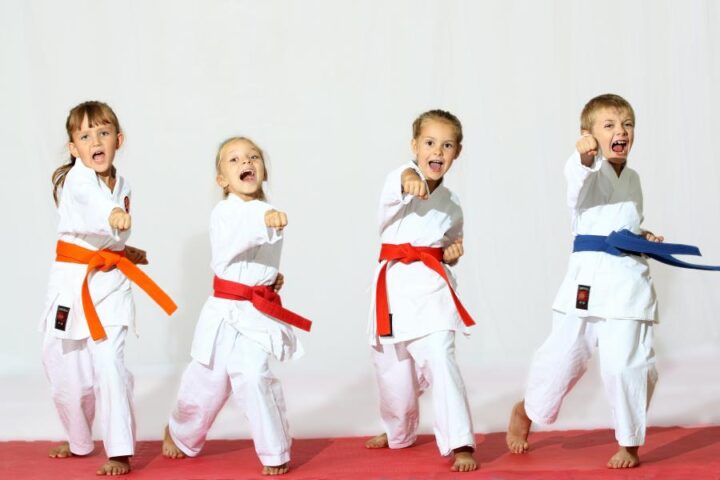
Before making a decisive plunge into a long-term commitment, it’s highly advantageous for parents to consider enrolling their child in instructive trial classes initially. These pivotal sessions are illuminating, providing intricate insights into the teaching methodology, the structural framework of the class, and the dynamic interactions within, allowing both parents and children to tangibly experience the dojo ambiance and make informed, well-rounded decisions about future participation. These trial opportunities are invaluable, allowing children to explore and assess their comfort level, gauge their genuine affinity with karate, and experience firsthand the discipline’s demands, thereby facilitating a smoother, more harmonious transition into the regular, structured classes.
Safety Precautions
In karate, maintaining stringent safety is an absolute paramount concern. It’s imperative that parents meticulously ensure that their chosen dojo steadfastly adheres to rigorous safety protocols, necessitating the use of essential protective gear and offering meticulously supervised sparring sessions. Placing a pivotal emphasis on mastering proper techniques and endorsing gradual progression effectively mitigates the inherent risk of potential injuries, ensuring a safe learning trajectory. Moreover, it’s crucial for parents to continuously encourage their children to communicate transparently and openly about any prevailing discomfort or concerns, thereby fostering a reassuring, secure, and enjoyable learning environment conducive to consistent growth.
Setting Realistic Expectations
The journey through karate signifies non-linear progress and demands considerable time, immense patience, and persistent, dedicated effort. It’s crucial for parents to establish and endorse realistic, achievable expectations, motivating their children to centralize their focus on continuous learning and holistic self-improvement rather than unhealthy comparison and competition. Consciously acknowledging and celebrating even the small, incremental victories and extracting valuable learning experiences from inevitable setbacks diligently inculcates a resilient growth mindset, effectively propelling the child forward on their enlightening martial arts journey, instilling enduring values of perseverance and self-reflection.
Conclusion

Karate is a multifaceted discipline that enriches children’s lives physically, emotionally, and cognitively. Parents, armed with knowledge and insights, play an integral role in ushering their children into this transformative journey. By considering age, developmental milestones, interest levels, and selecting the right dojo, parents can provide an optimal environment for their children to flourish in karate and beyond. The journey of karate is a dance between discipline and passion, leading to the harmonious growth of body, mind, and spirit, enabling children to carve out their paths with resilience, integrity, and wisdom.

